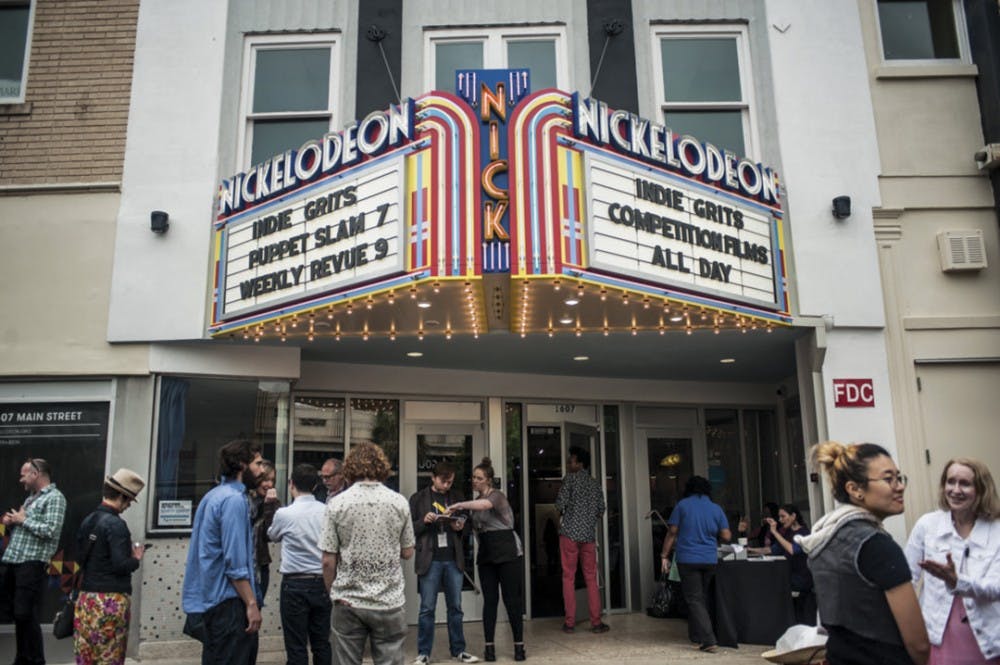Beauty and struggle converge at Indie Grits Labs’ latest exhibition, “Waste and Want in the Rural South.” The organization has a different themed project every year that is explored through the works of several artists.
“This year it’s a rural project, so we looked for fellows that were doing work, documentaries, media projects in rural areas and exploring rural themes,” said Seth Gadsden, the director of Indie Grits Labs. “A lot of politics and a lot of culture is driven by what’s happening in rural areas, so the whole point behind doing this project is to really engage with the rural communities.”
Indie Grits Labs is a Columbia-based nonprofit that creates artist driven projects and offers media education to serve local communities according to indiegrits.org. It also hosts the annual Indie Grits Festival.
The gallery, which takes place in a house, is split between the works of Thaddeus Wayne Jones Jr. and Ian Dillinger. While both men decorated the building with photographs, Dillinger also incorporated objects and antiques from Walterboro, South Carolina, such as hats, furniture and a wedding dress.
Indeed, the exhibition begins the moment visitors step through the front door. Dillinger tried to create an atmosphere he described as “homey” and “a trip through memory lane at grandma’s house.”
“You can come in, and you can be comfortable,” said Dillinger. “You can set your computer up on that table and have that box of photos, and do some work, and then also just look through some stuff to just take some time and to be able to create your own narrative of what rural spaces are.”
For Dillinger, the idea of creating one’s own narrative was central to his contributions. While he shared brief histories of some of the objects, like the photo box’s connection to a Walterboro founding family and the table’s construction by his girlfriend’s grandfather, he hopes visitors will create their own stories for the items they see.
“We don’t necessarily think about the history,” Dillinger said. “We touch all these objects and we’re influenced by all these things that are in these areas, but we don’t necessarily know the whole story behind them. So, sometimes we create our own narratives, and sometimes we don’t even think about it.”
Jones provided extra narrative for visitors to consider by contributing photographs of his hometown, Hampton, South Carolina.
Jones said he used “visceral" imagery of sprawling, seemingly untouched spaces paired with melancholy images of abandoned buildings that were thrust into a state of waiting. In addition, many of Jones’ photographs deal with food and bread, reflecting Jones’ previous experiences as a bread truck owner.
In this way, Hampton represents all that this project set out to explore. Jones explained that as businesses close and jobs disappear, Hampton’s younger generations leave the town, unable to make a contribution in terms of industry and entrepreneurship.
“I wanted to start those conversations by showing, kind of almost holding up a mirror in front of the face of this place, that we have some wonderful things here, but like anything else we need to cultivate it, we need to nurture it, we need to foster it and help it grow,” Jones said. “Holding up that mirror of the challenges, but also showing them there’s still beauty here, is kind of the idea.”
Through his own photographs, Dillinger tried to show the grittiness of the rural South.
“It was my hope in these photographs to be able to sort of document the present, but how in many ways that present is still set back in the past because when we think about rural space, we think about antiquated ways of doing things,” Dillinger said.
Together, Jones and Dillinger have created a space that aims to pay tribute to the rural South while also exploring its struggles, perhaps exposing those from larger cities to a new lifestyle.
“The majority of us are living in these urban areas and urban environments and often times develop blinders for how the world is really put together,” said Gadsden, noting that much of the country’s food and oil comes from these rural areas. “So to be disengaged is in a way to be completely disengaged with the things that enable you to live your life in urban environments.”
"Waste and Want in the Rural South" will be at the Indie Grits Labs, 1013 Duke Ave., until March 10.

